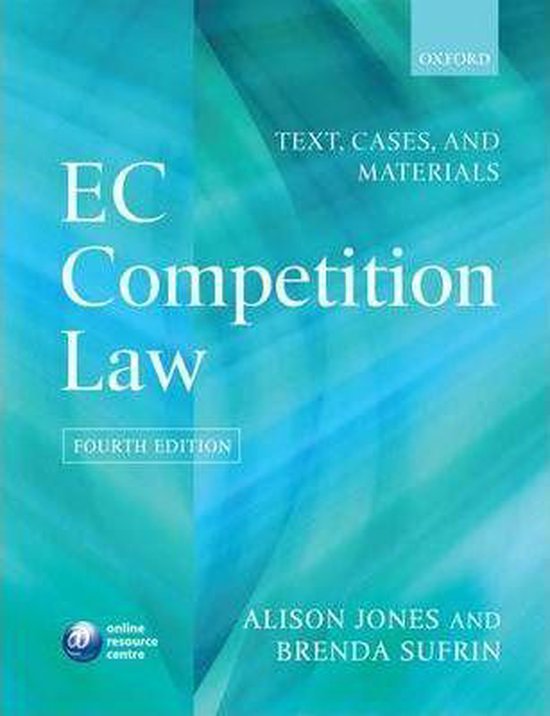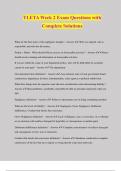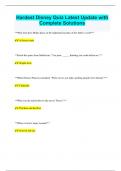COMPETITION LAW
,SCHOOLS OF THOUGHT, AIMS OF COMPETITION
LAW AND DIFFERENT COMPETITION LAW MODELS
INTRODUCTION TO COMPETITION LAW
ECONOMICS OF COMPETITION
• Capitalism: ‘organising principle of western economies’.
Free market economies considered societally most beneficial economic system.
Actors compete freely on markets.
Supply and demand determine resource allocation, rather than e.g. state planning
Markets considered capable of healing themselves.
• Yet, it has long become clear that uninterrupted markets do not always lead to perfect competition. E.g. cartels
• Competition law is supposed to address this problem
“Laisser-faire” policy doesn’t always work out in the way to perfect competition.
COMPETITION LAW
• Competition Law (or Antitrust Law in the US) prohibits anticompetitive:
Collusion (agreements, concerted practices, decisions by associations),
Unilateral conduct (abuse of a dominant position, sometimes dominance itself),
Mergers (mostly, but not in all countries),
And, in the EU, state aid.
• Infringements might result in a fine, behavioural and structural remedies and damages claims.
• Competition Law is a newer legal development
First introduced in the US (1890 Sherman Act).
Then, with the establishment of the EEC, gaining importance in the EU.
Many countries in the world have followed suit over the last ten years.
Some countries still do not have competition law.
If the company is a monopoly and acts in the way that abuses its power and pushes away the smaller businesses, it acts
in breach of competition provisions.
Competition law is spreading widely, almost 60 countries are covered; however, some are not like Cambodia.
AIMS OF COMPETITION LAW
WHY ARE AIMS IMPORTANT?
• Competition law provides possibility of intervention when competition is disrupted.
• How much intervention in the market is desirable is highly disputed!
• It depends on the exact aims to be achieved through competition law in a specific jurisdiction
• This is determined by different schools of thought.
• Not just theoretical!
Interpretation of provisions highly depends on this!
Cases/legislation; Important; Academic; 1
,ECONOMIC AIMS
• Economic efficiency
Generally accepted aim
But should it be the only aim?
And according to which standard?
Consumer welfare or total welfare?
• The process of competition
• Protecting competitors
• Fairness / level playing field
Major aim is economic efficiency in the market.
This is highly disputed. Some argue there should be wider aims, some argue that this is the only important/necessary
one. Different standards e.g. in EU consumer oriented/ in US market oriented. What might not be breach in the US
might be so under the EU laws. (Academic Commentary for this)
Fairness – particularly important whereby the new area has been privatized. E.g. healthcare.
WIDER AIMS
• Socio-economic considerations
E.g. environmental concerns, equality of access.
• Human rights
E.g. data protection, workers’ rights.
• Examples of stated wider aims from ASEAN Member States
Public interest / welfare (Indonesia, Myanmar, Philippines, Vietnam)
Equal opportunities / distribution of resources (Indonesia, Philippines)
Rights and interest of the state (Lao PDR, Vietnam)
Economic development (Malaysia, Myanmar)
Better quality of life for the under-privileged (Philippines)
Honesty (Vietnam)
WIDER AIMS IN THE EU CONTEXT
• Market integration – To complement internal market law; Early aim in EU competition law.
• Effective competition – Outcome-based.
• Other objectives (public policy).
• ‘Modernisation’ with focus on economic efficiency.
SCHOOLS OF THOUGHT
WORKABLE COMPETITION
• When the Sherman Act 1890 was first enforced this had an ad hoc character without a broader vision of the aims.
The main point was that trust could be controlled to an extent. This is where the name of the American
antitrust law comes from; rather than competition law.
• First school of thought in 1940s: ‘Workable competition’
Cases/legislation; Important; Academic; 2
, Perfect competition is impossible.
Try to get competition as best as workable (i.e. possible)
Problem: When exactly is ‘workable competition’ achieved?
HARVARD SCHOOL
• 1960s
• S-C-P Paradigm
Structure of the market influences the Conduct of companies which influences economic Performance
The fewer firms = the less competitive the industry
• Interventionist approach
In these situations, the competition law is more likely to intervene rather than solving the situation by a merger or an
acquisition.
CHICAGO SCHOOL
• 1970s
• Strong belief that the market will heal itself
If market structure is imperfect Demand will not be met This will incentivise competitors to enter
the market Which will increase competition in the longer term.
• Enforcement only needed, if market entry is disturbed.
Yet, not many barriers to entry recognised. Only the most extreme exclusionary practices
If competitors too stupid to be competitive, why protect them?
The idea that the companies seeing that the demand is not met will step up and enter the market by taking the
opportunity, this therefore will heal the market.
Basically, ‘laissez-faire’ approach.
• Only aim of competition law is economic efficiency.
Efficiency can be achieved in concentrated markets; no need to protect other businesses/
Total welfare standard.
*Chicago trap: When Chicago scholars talk about ‘consumer welfare’, they mean ‘total welfare’!!!
• Most influential work: The Antitrust Paradox (Robert Bork 1978) – Claims that paradoxically the biggest threat to
competition is legal intervention itself.
• Therefore, Chicago school much less interventionist than Harvard.
• Criticisms:
Claims to be apolitical, as only based on economic theory.
But clearly informed by capitalist ideology.
US-centric, other countries have different laws imposed; therefore, this might not be even remotely
relevant in different legal and political system.
Too simple to account for real world, not all market will act rationally, therefore, expecting a self-healing
of the market is an oversimplification.
• Still influential under Bush administration, less so initially after financial crisis.
Chicago school of thought still have influence. The idea of economic efficiency originates from it.
Cases/legislation; Important; Academic; 3











